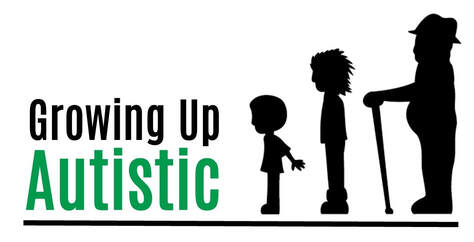
By Trevor Pacelli
I may land on the autism spectrum, I may have delayed speech development, I may be at times discomforting to talk to in person, I may get tired easily from being out a lot, but I still have proven that I’m just as capable as everybody else in working a satisfying career.
One month after I received my Bachelor of Arts in Film and Media Studies from Arizona State University, my parents offered me a position in their company to prepare me for a career. They had me start with my three primary areas of interest: photography, movie reviews, and my book I wrote at 19, Six-Word Lessons on Growing Up Autistic. Since then, these areas have grown into a website where I sell photos (trevorpacelliphotography.com), a blog where I write about autism lessons in your favorite movies (trevorsviewonhollywood.com), and talks I’ve done for schools and other groups around the Seattle suburban area to promote autism awareness.
The bad news is, not everyone understands this. A 2013 study by the Journal for the American Academy of Child & Adolescent Psychiatry says that only 53.4% of adults with autism aged 21-25 have work for pay outside the home. It’s much harder for people on the spectrum to find work that both pays them well and utilizes what they’re capable of, as those types of jobs are limiting. What makes it harder is that many corporations value team players who are excellent with interpersonal interaction; which does not align with the heavily introverted traits of autism. The mental health website Emaxhealth.com has listed jobs best recommended for anyone on the spectrum, which includes but is not limited to computer programming, engineering, designing, photography, accounting, and journaling. Or, if the worker is nonverbal, job titles including janitor, store stocker, or landscaper work out great. They do not recommend “people” jobs such as waiter/waitress, market trader, and receptionist. While limitations exist for more popular jobs, it’s not hopeless. In fact, accommodations are everywhere to help those with developmental disorders find the right type of employment. There are hiring programs, including those that help you after you get hired. Now, these can go a number of ways: If there is any sensitivity to bright lights, you can ask to have the fluorescent lights in your work space turned down. If you are caught off guard by sudden schedule changes, the employer can know to give more advance notice of these changes. Most people on the spectrum love a predictable work environment, and employers are always required by law to make sure each employee is comfortable in his or her work space.
Once one with autism finds an employer where both the boss and worker can mutually cooperate, then the positive skills of an autistic worker come into play. A couple of key strengths than an autistic worker can use to benefit a business includes a hawk’s eye attention to detail, a photographic memory, passionate focus on a given task, and a vivid imagination. The journey to finding the right type of job is different for everyone, and everyone gets to the position of earning regular income differently and in varying amounts of time, but everyone is capable of doing it, no matter what it may appear.
And finally, here is an article about the Soldiers of Intelligence Unit 9900, who demonstrate the skills of autism utilized in a job that actually requires them to save thousands of lives.
0 Comments
Leave a Reply. |
Inspiration for Life with AutismThis blog has a variety of articles about people living life with autism, and topics and ideas that can help in the journey. Guest bloggers are welcome. Inspired by Trevor, a young adult film critic, photographer and college graduate on the autism spectrum. Categories
All
Archives
July 2024
|
Proudly powered by Weebly

 RSS Feed
RSS Feed